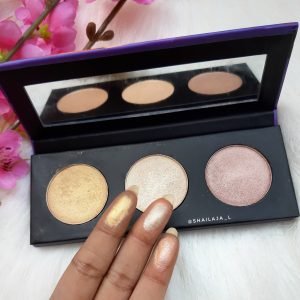Winter brings with it a certain charm, but it also poses challenges for our skin. The cold weather can leave our skin feeling dry, tight, and in need of extra care. Crafting a winter skin care routine is not just about maintaining appearance; it’s about ensuring your skin’s health and well-being. In this guide, we’ll delve into the importance of a winter skin care routine, explore the key elements for nurturing your skin, and answer some common questions to guide you through the winter months with radiant and healthy skin.
Understanding the Importance of a Winter Skin Care Routine
1. Combatting Dryness and Irritation
Winter is notorious for its dry air, which can strip the skin of its natural oils, leading to dryness and irritation. A dedicated winter skin care routine acts as a shield, protecting your skin from the harsh elements and maintaining its moisture balance.
2. Preparing for Temperature Fluctuations
The winter season often brings temperature fluctuations, moving from the cold outdoors to heated indoors. Such changes can shock your skin. A well-thought-out routine prepares your skin for these variations, keeping it comfortable and resilient.
3. Preventing Long-Term Damage
Neglecting your skin in winter can result in long-term damage, including premature aging and heightened sensitivity. A consistent skin care routine ensures you’re taking proactive measures to prevent such issues and maintain a healthy complexion.
Key Elements of a Winter Skin Care Routine
1. Hydration Heroes: Cleansing and Moisturising

Choosing the Right Cleanser
Opt for a hydrating cleanser that cleans your skin without stripping away its natural moisture. Look for ingredients like hyaluronic acid or glycerin, which lock in hydration.
Moisturizing Techniques for Winter
Select a moisturizer tailored for winter conditions. Ingredients such as shea butter and ceramides provide a protective barrier, preventing moisture loss and keeping your skin supple.
2. Sunscreen, Your Winter Essential
Debunking the Sunscreen Myth
Contrary to popular belief, sunscreen is not reserved for summer. UV rays can penetrate clouds, and snow reflects sunlight, intensifying its impact. Make sure your daily regimen includes using a broad-spectrum sunscreen with at least SPF 30.
3. Gentle Exfoliation for Radiant Skin
Significance of Exfoliation in Winter
Dead skin cells are removed via exfoliation, which brightens the complexion. However, in winter, opt for gentler exfoliants to avoid over-sensitizing your skin.
4. Nourishment from Within: Diet and Hydration
Impact of Nutrition on Skin Health
A balanced diet rich in antioxidants, vitamins, and omega-3 fatty acids contributes to your skin’s health. Incorporate foods like fruits, vegetables, and fish into your winter diet.
Hydration Tips for Winter Wellness
Besides external hydration, ensure you’re drinking enough water. Hydrated skin is more resilient to winter challenges, so keep that water bottle close.
Conclusion
In conclusion, a winter skin care routine is not a luxury but a necessity. It’s your proactive approach to nurture and protect your skin against the challenges of the chilly season. By focusing on hydration, sunscreen, gentle exfoliation, and nourishment from within, you’re creating a holistic defense for your skin.
Remember, consistency is key. Building a routine and sticking to it will yield the best results. As winter unfolds, let your skin not just survive but thrive with radiance and resilience.
Frequently Asked Questions (FAQs)
1. Is sunscreen necessary in winter, even if it’s cloudy?
Absolutely! UV rays can penetrate clouds, leading to skin damage. Apply sunscreen every day, regardless of the weather.
2. How often should I exfoliate during the winter months?
Exfoliate 1-2 times a week to remove dead skin cells. Over-exfoliating can strip your skin, so find the right balance for your skin type.
3. Can I use the same moisturizer in winter as I do in summer?
It’s advisable to switch to a richer, more hydrating moisturizer in winter. Look for ingredients like shea butter and ceramides for added nourishment.
4. Are DIY masks effective for all skin types?
DIY masks can be beneficial, but it’s essential to choose ingredients that suit your specific skin type. For dry skin, opt for hydrating ingredients like avocado and honey.
5. What should be in my winter skincare emergency kit?
Include essentials like lip balm, a hydrating mist, a soothing cream, and a gentle cleanser. These items will help address sudden skin concerns during the winter season.




